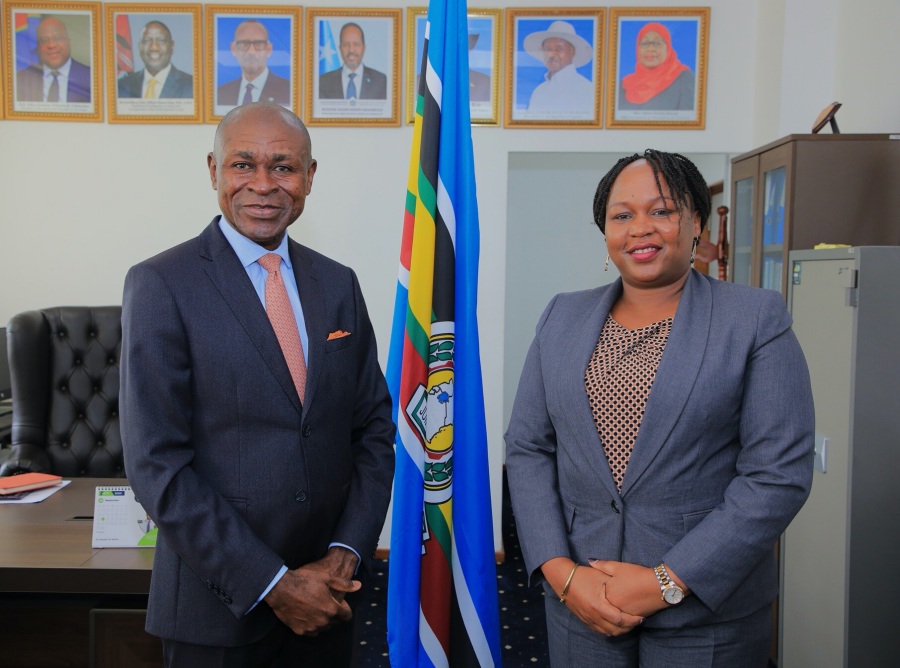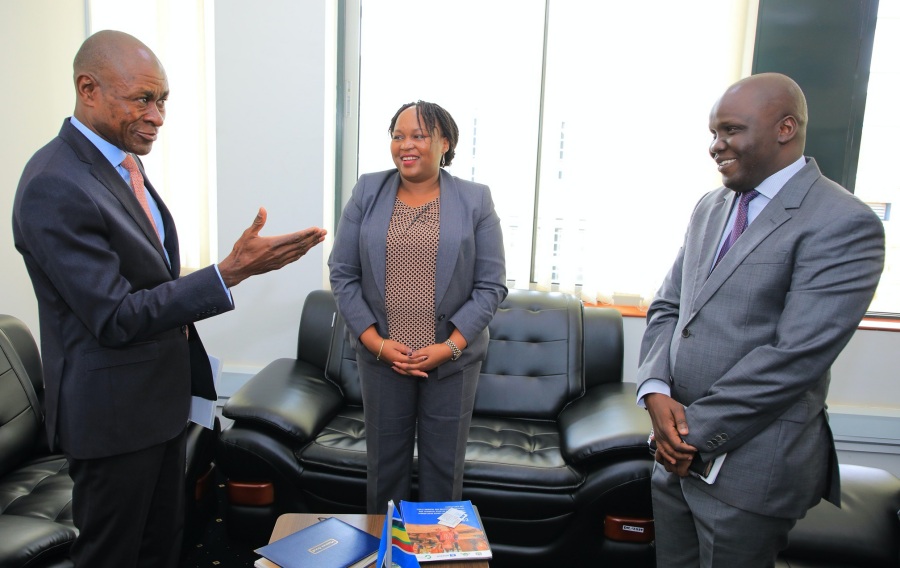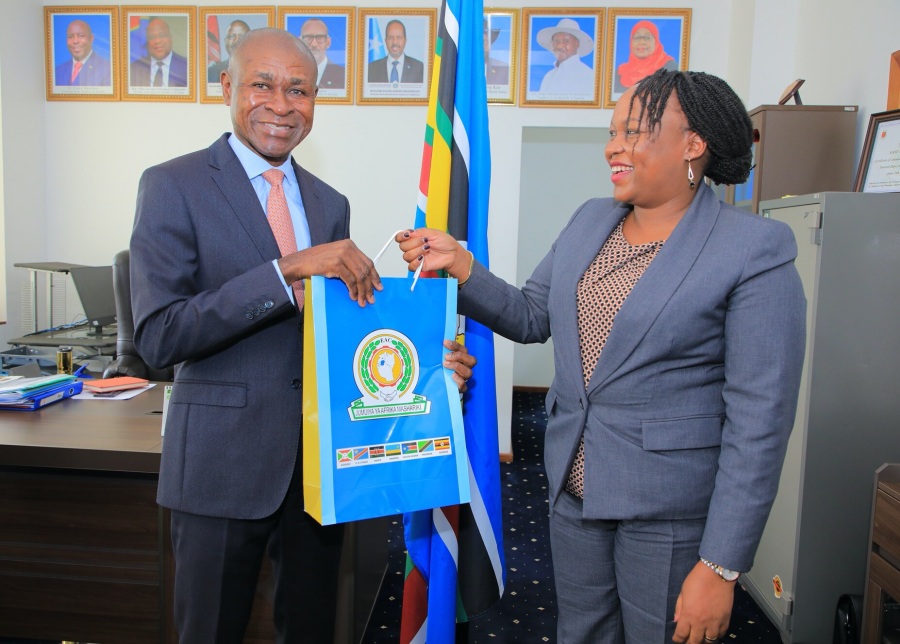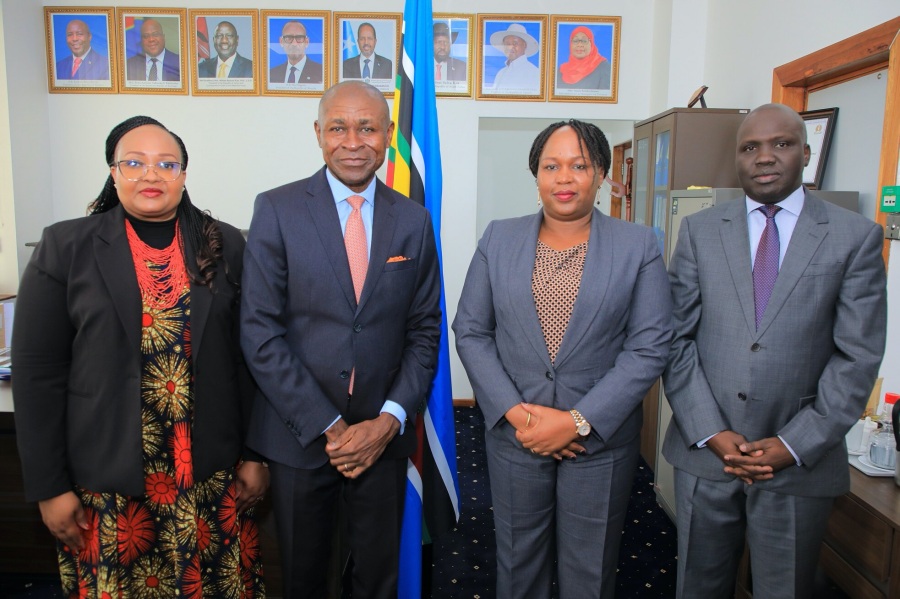
EAC and UNESCO renew commitment to enhance collaboration between them
East African Community Headquarters, Arusha, Tanzania, 6th August, 2024: The East African Community (EAC) and the United Nations Educational, Scientific and Cultural Organisation (UNESCO) have reaffirmed their commitment to partner in areas of mutual interest to both organisations including education, health, culture, sports, music and the arts.
Consequently, both the EAC and UNESCO have committed to negotiate and sign a new Memorandum of Understanding to replace the one that was signed by both organisations in 2006.
Speaking when he paid a courtesy call on the EAC Secretary General, H.E. Veronica Nduva, in Arusha, Tanzania, the UNESCO Head of Office and Representative to Tanzania and the EAC, Mr. Michel Toto, said that the two organisations share similar priorities including promoting education, culture and the Kiswahili language as a lingua franca, in East Africa and globally.
Mr. Toto said that the MoU to be signed by the two organisations should be in line with the EAC and UNESCO’s priorities. He also called for expediting the negotiations, which he said were long overdue.
Mr. Toto further emphasised the role of education in promoting peace all over the world, adding that UNESCO would work with EAC to promote the usage of Kiswahili in East Africa and beyond.

Mr. Toto said that UNESCO was committed to strengthening its cooperation with EAC like has been the case with the African Union (AU), the Economic Community of West African States (ECOWAS) and the Southern African Development Community (SADC), partnerships that he said had yielded lots of mutual benefits to all parties.
In her remarks, the EAC Secretary General, H.E. Nduva, said that the EAC relies a lot on inputs by its development partners in planning and executing its key programmes and projects.
H.E. Nduva acknowledged UNESCO’s role in diverse sectors including gender, culture, education and health, and pointed out that EAC could benefit immensely through cooperation with UNESCO in these and other sectors.

The SG informed the UNESCO official of EAC’s determination to promote Kiswahili as the lingua of the region, adding that Kiswahili is now one of the official languages of the Community alongside French and English. She added that 7th July is now celebrated as the World Kiswahili Language Day with the most recent celebrations having been held in Mombasa, Kenya.
H.E. Nduva disclosed that the Community places a high priority on education with the bloc now a Common Higher Education Area and a number of specialised institutions established to, among other things, offer opportunities for professionals in the region to interact and share knowledge, experience and best practices in their respective fields.
The Secretary General said that the bloc had come up with various activities to promote and safeguard the region’s rich cultural heritage highlighting events such as the annual Micro Small and Medium Enterprises Forum (popularly known as Jua Kali Nguvu Kazi), EAC Games and JAMAFEST – a biennial festival that seeks to showcase culture as a primary driver of regional integration in East Africa.
H.E. Nduva underscored the importance of revisiting the MoU between the EAC and UNESCO saying that the revitalised MoU would, among other things, encourage mobility in the arts, music and sports in addition to supporting MSMEs.

Also present at the event were the EAC Deputy Secretary General in charge of Infrastructure, Productive, Social and Political Sectors, Hon. Andrea Aguer Ariik Malueth, Ms. Faith Shayo, the National Programme Officer (Education) at the UNESCO Dar es Salaam Office, and Mr. Maurice Tayebwa, the Gender, Youth and Children Expert at the EAC Secretariat.
For more information, please contact:
Simon Peter Owaka
Senior Public Relations OfficerCorporate Communications and Public Affairs DepartmentEAC SecretariatArusha, TanzaniaTel: +255 768 552087Email: This email address is being protected from spambots. You need JavaScript enabled to view it.
About the East African Community Secretariat:
The East African Community (EAC) is a regional intergovernmental organisation of eight (8) Partner States, comprising the Republic of Burundi, the Democratic Republic of Congo, the Republic of Kenya, the Republic of Rwanda, the Federal Republic of Somalia, the Republic of South Sudan, the Republic of Uganda and the United Republic of Tanzania, with its headquarters in Arusha, Tanzania. The Federal Republic of Somalia was admitted into the EAC bloc by the Summit of EAC Heads of State on 24th November, 2023 and became a full member on 4th March, 2024.
